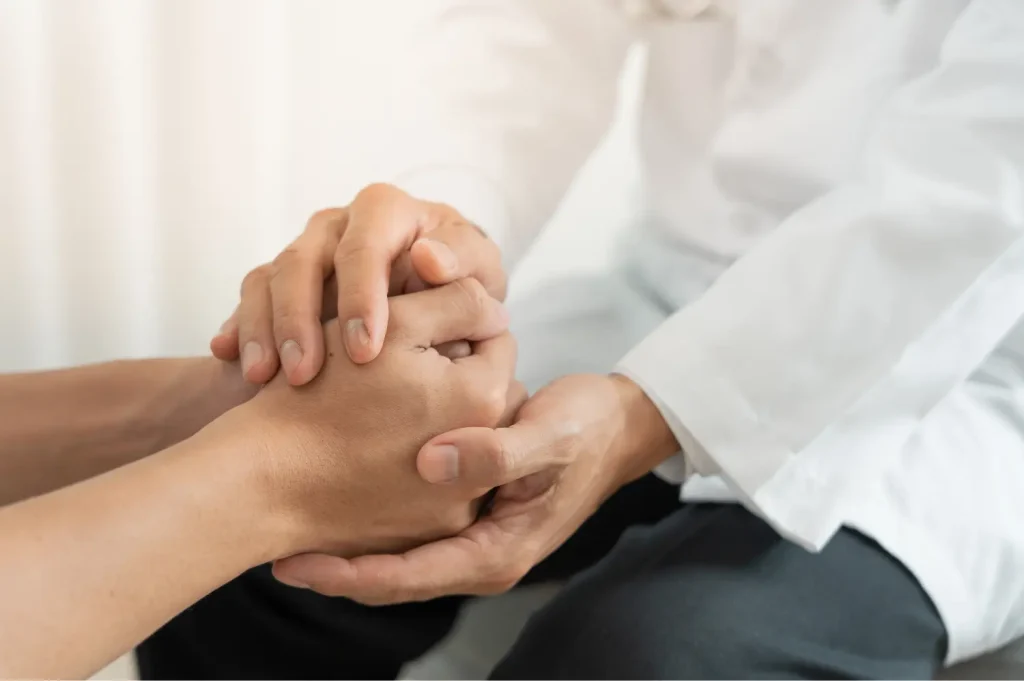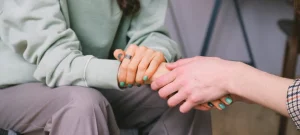Drug addiction often develops gradually, making it hard to know when casual use has crossed into a serious problem. Many people delay getting help. In the United States, only about 1 in 5 individuals who need substance use treatment actually receive it. One major reason is denial or failure to recognize the issue. However, identifying the warning signs early can be life-saving. In this article, we’ll discuss the symptoms of substance abuse and addiction that indicate it’s time to seek professional help. Remember, effective treatment is available, and recovery is possible with the right support.
Recognizing the Problem and Overcoming Denial
It can be challenging to recognize drug addiction in oneself or a loved one. Denial is common. People often convince themselves their drug use isn’t “that bad” or that they can quit anytime. Unfortunately, this denial allows the addiction to worsen. Experts note that it’s often hard to admit a substance use disorder, even as addiction causes devastating consequences. In the early stages, someone might hide or rationalize their use. They may think they’re just using socially or to cope with stress. Early signs of addiction can be subtle and are easy to overlook or dismiss. Overcoming denial is the first step: one must honestly evaluate the impact of drug use on one’s life. If you find yourself making excuses for using, minimizing how much you use, or getting defensive when questioned, these are addiction warning signs that should be taken seriously. Acknowledging the problem is difficult, but it opens the door to getting help.

Physical and Health Warning Signs
Drug addiction doesn’t just affect your mind and behavior. It also takes a toll on your body. Often, symptoms of substance abuse will manifest as noticeable physical changes or health issues. For example, you might observe:
- Bloodshot or glazed eyes, with pupils larger or smaller than normal
- Changes in appetite and sleep patterns, leading to weight loss or weight gain
- Decline in personal grooming or hygiene; looking unkempt or ill
- Unusual smells on the breath or clothing (which could indicate substances like alcohol, inhalants, or smoke)
- Impaired coordination, slurred speech, or tremors
Such physical warning signs of drug abuse may signal that casual drug use has progressed into something more serious. Health problems can quickly accumulate. People struggling with addiction often experience frequent illnesses or injuries. Drug use can weaken the immune system and cause a range of medical issues. Ignoring these physical signs can be dangerous. If drugs are causing you to feel sick, run-down, or if you’ve had overdoses or health scares, it’s a clear sign to seek medical help. Your body might be telling you it can’t handle the abuse, and continuing down this path puts you at risk of more severe illness or even death.
Behavioral and Lifestyle Changes
Addiction often reveals itself through changes in behavior and daily life. Someone who needs help for drug addiction will likely exhibit marked shifts in how they act and what they prioritize. A major red flag is when drug use starts to come before responsibilities and hobbies. You might notice things like:
- Neglecting responsibilities – missing work or school, performing poorly, or ignoring duties at home because of drug use. Being too hungover or high to attend important events or carry out tasks.
- Withdrawal from activities – losing interest in hobbies, sports, or social activities that used to be important. The person may spend most of their time getting or using drugs, or recovering from them, instead of participating in everyday life.
- Secretive or suspicious behavior – hiding drug use from others, lying about one’s activities or whereabouts, or becoming defensive and angry when questioned. This can include suddenly wanting a lot of privacy, locking doors, or frequently disappearing for unexplained periods.
- Changes in social circle – drifting away from long-time friends or family in favor of a new group of friends who are also using drugs. This often goes hand-in-hand with avoiding anyone who might question the drug use.
- Risky behaviors and legal trouble – doing things under the influence or to obtain drugs that one normally wouldn’t do. This could mean driving while intoxicated, having unsafe sex, or engaging in illegal acts like stealing money or pills. Many individuals struggling with addiction get into legal problems such as DUI arrests or other drug-related offenses.
- Financial difficulties – spending excessive money on the substance, borrowing or stealing money, or finding that valuable items are mysteriously missing (often sold to fund the addiction).
When drug use starts interfering with ordinary life and relationships, these are glaring addiction warning signs that professional intervention is needed. As mentioned, someone addicted might start continuing to use the drug even when it causes serious problems at work or home, or they may abandon hobbies and social events they once loved. When your lifestyle revolves around substance use rather than the things you used to value, help with addiction is urgently needed.
Psychological and Emotional Signs
Along with physical and behavioral changes, addiction usually impacts a person’s mental and emotional state. Mood and personality shifts can be early signs of addiction or indicate worsening substance abuse. Be on the lookout for patterns such as:
- Mood swings and irritability – Sudden, unexplained changes in mood are common. A person might be euphoric or energetic while high, then depressed, anxious, or quick to anger when the drug wears off. They may experience angry outbursts or appear irritable for no apparent reason.
- Depression or anxiety – Ongoing substance use often exacerbates mental health issues. Someone might appear persistently sad, hopeless, or anxious, especially during periods when they’re not using. They might start using drugs specifically to self-medicate these feelings, creating a vicious cycle.
- Paranoia or fearfulness – Certain drugs can induce paranoia, making a person suspicious or fearful without justification. You might notice they seem constantly on edge, or talk about hearing/seeing things that aren’t there.
- Loss of motivation – A previously ambitious or enthusiastic individual may lose interest in their goals and overall outlook on life. They could seem apathetic, unmotivated, or “spaced out” much of the time.
- Changes in personality – You might feel like you don’t recognize the person anymore. For example, a gentle, honest person may become deceitful or manipulative under addiction, or a normally outgoing person may become withdrawn and secretive.
These psychological warning signs of drug abuse include unexplained personality changes, severe mood swings, and odd behaviors like extreme anxiety or paranoia. Don’t dismiss these symptoms as “just stress” or “just a phase.” Persistent psychological changes warrant evaluation and are strong indicators that you may need substance abuse help.

Tolerance, Withdrawal, and Loss of Control
One of the clearest signs of drug addiction is when your body and brain become dependent on the substance. Over time, you may notice you need to use more and more of the drug to get the same effect. This is called tolerance. For example, where one pill or one drink used to be enough, now you need multiples to feel normal or high. Alongside tolerance comes withdrawal: if you go too long without using, you start feeling awful. Withdrawal symptoms can differ by substance, but they are a key signal of physical dependence. Continuing to use a drug just to avoid withdrawal or to feel “okay” is a serious warning sign.
People struggling with addiction often find that their attempts to cut down or quit have failed. You might promise yourself to stop after a specific date, or try to go cold turkey, only to find you can’t resist the cravings. This loss of control is at the heart of addiction. You may genuinely want to stop using and yet feel powerless to do so. If you’ve experienced intense cravings or felt physically ill when trying to quit, it’s a sign the substance has taken hold of your system. Needing larger doses to get the same high and suffering withdrawal symptoms when you don’t use are clear indicators of a dependence. At this point, professional intervention is often needed to break the cycle safely. Medical detox or supervision might be required for certain drugs because withdrawal can be dangerous. Cravings and withdrawal can also hijack your emotions and behavior, making it hard to focus on anything besides getting relief. If you recognize that you’re trapped in this pattern, it’s definitely time to seek help.
Getting Help: Treatment and Support Options
Once you’ve recognized the signs of addiction in yourself or someone else, the next step is to seek out proper help. The good news is that a variety of addiction treatments are available, and many are highly effective. Treatment isn’t “one size fits all.” The best approach depends on the individual, the substance involved, and the severity of the addiction. A combination of medical care, counseling, and peer support offers the strongest foundation for recovery.
If physical dependence and withdrawal are issues, starting with a detox under medical supervision may be necessary. Doctors can ensure you withdraw safely and as comfortably as possible. In some cases, they can prescribe medications to ease withdrawal symptoms and cravings. Medications can alter brain chemistry to help treat certain addictions and relieve cravings or withdrawal symptoms. There are specific drugs to treat addiction to opioids (like methadone or buprenorphine) and alcohol (such as naltrexone or acamprosate) that greatly reduce the risk of relapse. Using these addiction specialists-prescribed medications is known as Medication-Assisted Treatment (MAT), and it’s an evidence-based approach for substances like opioids and alcohol.
Many people benefit from structured rehab programs. Depending on your situation, this could be inpatient (residential) rehab or outpatient programs. Inpatient rehab involves staying at a facility full-time for a period to focus intensively on recovery with 24/7 support. This is especially helpful if your environment triggers your use or if you need to distance yourself from daily temptations. Outpatient programs allow you to live at home but attend therapy and treatment sessions regularly. Both approaches typically include counseling, educational workshops, medical oversight, and activities to build coping skills. In the U.S., there are specialized facilities like alcohol rehabs focusing on alcoholism and opiate treatment center programs dedicated to opioid addiction. These centers offer a specialized environment with expertise in specific substances.
Counseling is another cornerstone of recovery. Therapists or counselors can help you understand the root causes of your addiction, develop healthier coping mechanisms, and rebuild life skills. Alcohol counseling, drug counseling, cognitive-behavioral therapy (CBT), and other therapy modalities all aim to equip you with strategies to resist cravings and handle life without substances. Therapy also addresses co-occurring mental health issues (like depression, PTSD, or anxiety), which often accompany addiction. Working with an addiction counselor or therapist can greatly boost your confidence in staying sober, as you’ll have someone to guide you through challenges and celebrate your progress.
Recovery is not a solo journey. Support from peers who have been through similar struggles is incredibly valuable. Many find help through support groups like Alcoholics Anonymous (AA), Narcotics Anonymous (NA), or other peer-led groups. These meetings offer a sense of community and understanding, along with practical advice from those who have further progressed in their recovery. Family support is also key. Involving family in therapy or attending family support groups (like Al-Anon) can heal relationships and create a sober-friendly home environment. Ultimately, recovery is about building a life that doesn’t revolve around drugs, and having supportive people around you makes that much easier. It’s essential to find addiction support that you’re comfortable with, whether it’s a formal group, a faith-based support program, or even online recovery forums.
Finding the Right Support
There may be setbacks or relapses, but these are common and can be overcome with persistence and support. Don’t get discouraged if you slip up. Instead, view it as a signal to adjust your treatment plan. Celebrate small victories along the way, like a week sober, then a month, and so on. Each milestone builds confidence.

If you’re helping a loved one who shows signs of needing help, approach them with compassion. Express your concerns without judgment and encourage them to seek professional help. It may help to gather information on substance abuse help options in advance, so you can offer concrete examples. Remember to set healthy boundaries as well. Supporting someone doesn’t mean enabling their addiction.
At TruPaths, we understand the challenges of addiction and the courage it takes to seek help. Organizations like TruPaths specialize in guiding individuals and families to the most suitable treatment resources with compassion and expertise. If you or someone you care about is exhibiting the signs discussed above, don’t wait. Reach out for drug use help sooner rather than later. Recognizing the need for help is a powerful first step. The next step is to take action by contacting professionals who can assist you on your road to recovery. With the right help and support network, you can break free from addiction and build a healthy, fulfilling future free of drugs.
Sources
- Cleveland Clinic – Substance Use Disorder (Drug Addiction) Symptoms & Treatment (behavioral signs and criteria) my.clevelandclinic.org
- Tennessee Dept. of Mental Health – Warning Signs of Drug Abuse (physical, behavioral, and psychological signs) tn.govtn.gov
- Mayo Clinic – Drug Addiction (Substance Use Disorder) – Symptoms & Causes (tolerance and withdrawal indicators) mayoclinic.org
- Addiction Policy Forum – The Myth of Waiting for Rock Bottom (importance of early intervention) addictionpolicy.org
- Cleveland Clinic – Substance Use Disorder – Treatment (role of medications in addiction treatment) my.clevelandclinic.org







